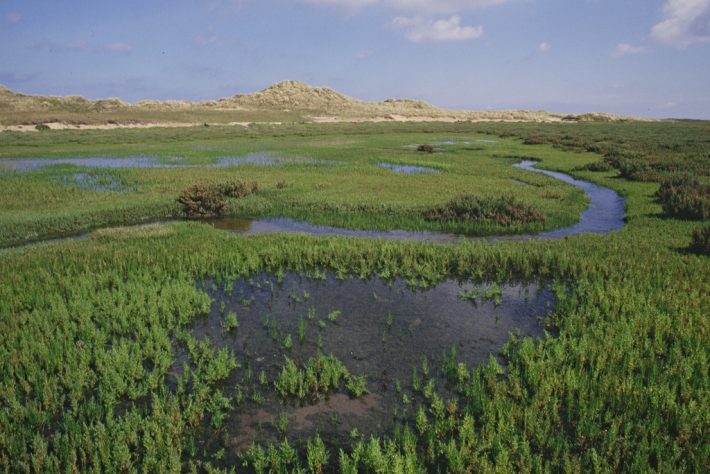Becoming climate smart: putting natural environment science into adaptation plans
Policy and science should be a perfect marriage.

Yet recently we have seen aspects of science becoming unhealthily politicised, whilst politics has shown some alarming swings away from evidence. And climate change is one area where we’ve seen some of the extremes, to the detriment of all.
So the British Ecological Society Climate Change Ecology Special Interest Group, Natural England and the RSPB were keen to use the five yearly cycle of impact assessments and adaptation planning, required by the UK Climate Change Act, as a springboard to bring science and policy together to inform the adaptation requirements for nature and the natural environment. Working together with other colleagues, we hosted a lively workshop with a mix of people from different endeavours and skills, taking science and scientists forward to policy and practitioners.
Discussing the natural environment risks
Discussion groups looked at 12 of the 14 key risk areas identified in the 2017 Climate Change Risk Assessment. The aim here was to make knowledge and ideas available, without spin or favour, to inform the development of adaptation responses. Across the wide range of impacts, a few similar threads emerged: perhaps the key one, a call for a strategic approach to land use land planning, integrating nature across the various interests and using opportunities for nature-based solutions for a range of societal adaptation requirements. All discussion points, as contributed by sticky-notes from everyone involved, are presented in our report, without winnowing or editing – our only editing being to draw out headline message from each of the discussions.
A series of five minute presentations greatly enlivened the meeting, providing a dazzling window into a range of research and practical responses that show how well adaptation is embedding into the fabric of nature science and practice. From the role of gardens and green space in climate change adaptation to Scots pines, large scale species movements to microclimate, the marine environment and green space, the talks highlighted interactions of climate change and nature, with wide ranging implications often far beyond the sharp focus of research. Again, we’ve pulled a few headline points from each, with the presentation material available for reference.
From science to action
Communications was another topic that emerged consistently across the day’s discussions. We had hoped from inception that bringing both science and policy people together would build appreciation about the different areas of work and forge some personal links across the two disciplines.
Professor Steve Ormerod bridged across this wide mix of role and society in his closing address. The age-old question: should scientists expand their ontological endeavours to actively inform and influence? In today’s world this ‘role stretch’ is a responsibility to both science and future generations. Science generates evidence, can provide revelations that influence practice and develop appropriate change. For the pressing issue of climate change, this is pertinent as much as, and perhaps mostly more so, than for anything else.
So we hope our workshop will help inform the forthcoming National Adaptation Plan to provide what nature needs from adaptation. And from achieving that, we’ll also ensure that our needs from nature, as people and societies, are also met.
Like what we stand for?
Support our mission and help develop the next generation of ecologists by donating to the British Ecological Society.